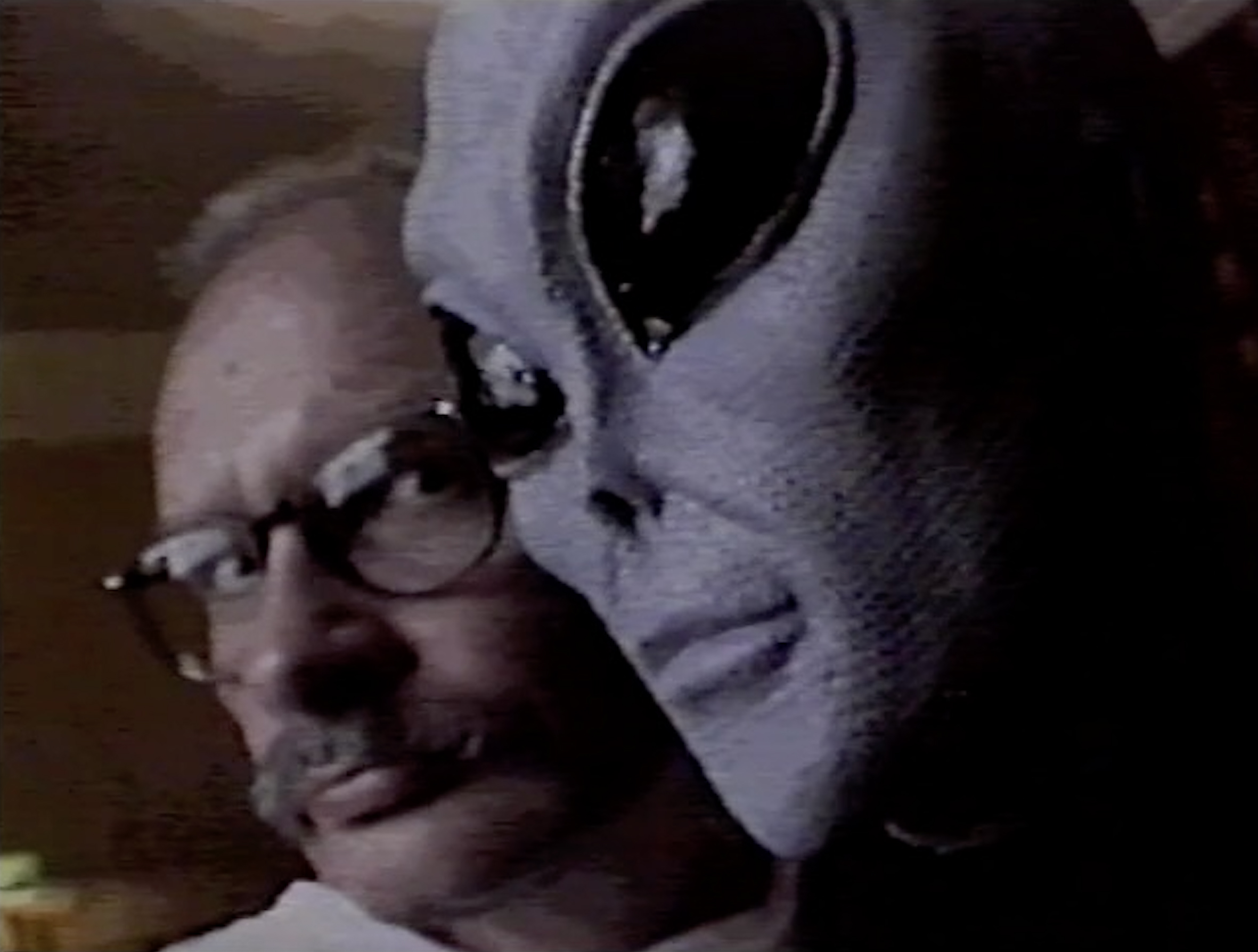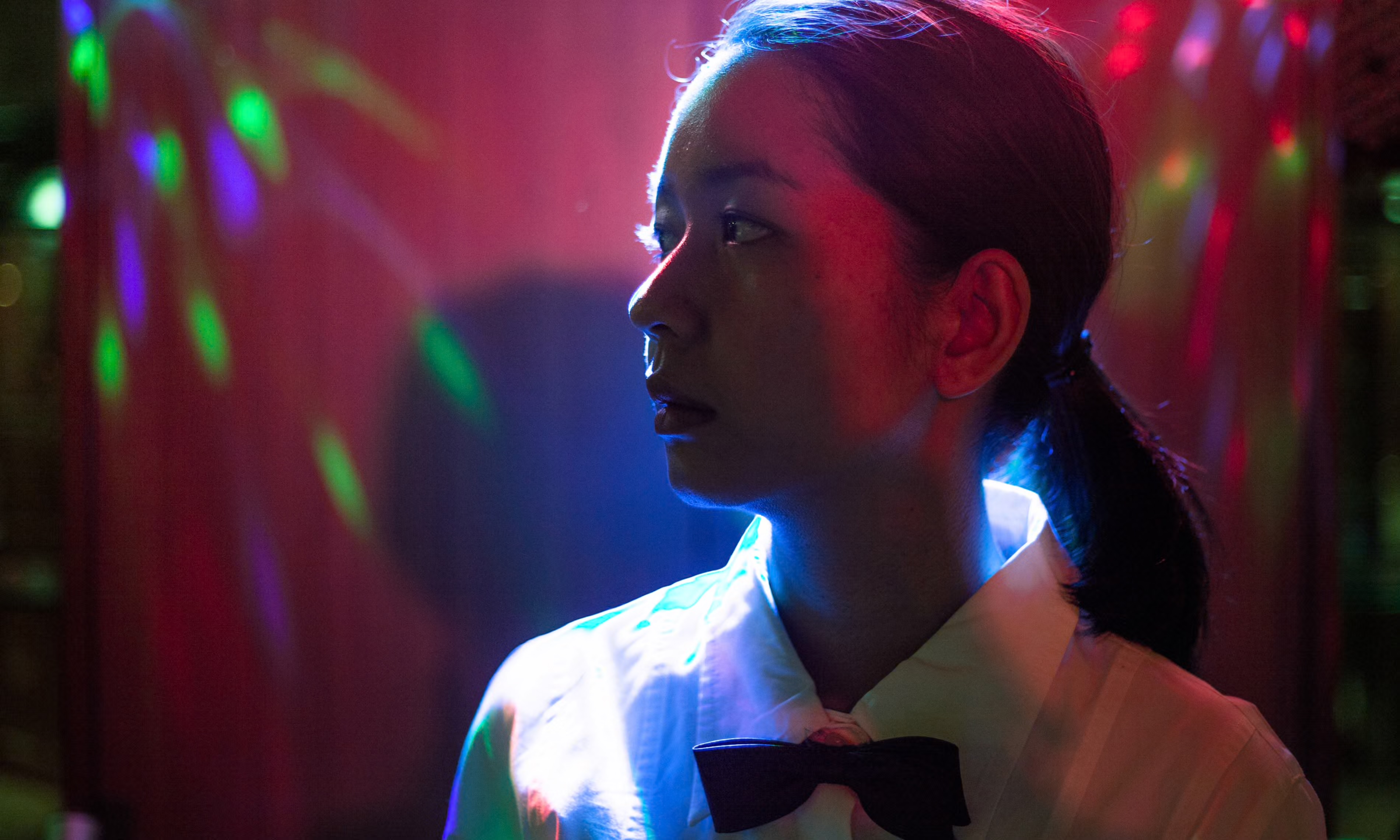4 Nights at the Museum
Starting Sunday, November 15, 2020
What happens to the art at the museum at night?
A weird-ass visual podcast
During the corona-related shutdown in November 2020, Hito Steyerl’s exhibition I Will Survive at K21 (September 26, 2020—January 10, 2021) transforms into a livestream format. The project “4 Nights at the Museum,” developed by the artist, filmmaker, and author Hito Steyerl, provides some background and conversations about the works in the exhibition.
In four episodes (each lasting ca. 45 minutes), selected works and themes in I Will Survive will be discussed in more detail. Participants in the works, such as the New York-based graphic designer Ayham Ghraowi or the Hamburg-based actress Heja Netirk, will talk about their perspectives. In addition, Steyerl will present alternative versions of exhibited works and previously unedited archival material. Short guided tours by the curators will accompany visitors into the exhibition spaces, which are abandoned at night. They will take a look at some of the works and prove that there is nothing going on inside the museum during the shutdown. No satanic rituals are taking place here at taxpayers’ expense, nor is adrenochrome being tapped, as conspiracy myths have claimed in the context of corona denial and vandalism at Museuminsel Berlin. In the closed-down rooms of K21, the only exception is Steyerl’s latest work SocialSim, in which police officers driven by live simulations dance and jump over the walls like herds running wild in the pandemic.
In the livestream mini-series Museum: The Island, Mark Waschke, the TV police inspector from SocialSim—now on short-time work—also reappears. In a two-part solo special, he prefixes the investigations in the museum with a lecture on “The Benefits of Automation for the Actor/Actress” and ultimately ends up at Museuminsel Berlin, where there is much to investigate after the attacks on artworks by dubious characters. In conjunction with the livestream, a new interactive version of the simulation in SocialSim will also be put online at the end of the month, so that, despite the museum’s temporary closure, the current general socio-political climate continues to be monitored.
The episodes will livestream on e-flux Video & Film starting Sunday, November 15. All episodes air at 8pm CET, 2pm EST.
Episodes Overview
November 15, 19, 21, 26
Sunday, November 15 at 8pm CET, 2pm EST
Dancing Mania (ca. 50 minutes)
Social Simulation as Choreography: Infodemia, Automation, and Dance
Mark Waschke, “My Introductory Lecture: The Benefits of Automation for the Actor/Actress”
Mark Waschke is a German theater, film, and television actor who gained fame in particular through his role as the Berlin police inspector Robert Karow in the ARD television series Tatort. He gained international attention through his role as Noah in the science fiction series Dark, produced by Netflix. In addition to film and television productions, Waschke is also regularly active in the theater, including the Schaubühne Berlin.
Parts of this episode were premiered earlier this fall as part of the contemporary art festival steirischer herbst's 53rd edition, titled Paranoia TV.
Ayham Ghraowi and Shintaro Miyazaki, “On the Politics of Simulation”
Ayham Ghraowi is a graphic designer and formerly Director of Programming and Publishing for the Office of the Dean at the Yale School of Art, where he was also a lecturer. He holds an MFA in Graphic Design from the Yale School of Art and is based in New Haven/Connecticut and New York City. He is the producer of the “Dancing Mania” sim and the Power Plants AR app.
Shintaro Miyazaki is a junior professor in Digital Media and Computation at the Faculty of Humanities and Social Sciences, Department of Musicology and Media Studies, Humboldt University, Berlin. He is at the same time a senior researcher at the Institute of Experimental Design and Media Cultures of the Academy of Art and Design, University of Applied Sciences and Arts Northwestern Switzerland, where he directs and finalizes a research project at the interference field of commoning, computation, and design.
Thursday, November 19 at 8pm CET, 2pm EST
How to Plant Flowers in Prison? (ca. 50 minutes)
Oracles, Neural Networks, and Plant Politics According to Heja
Discussion on This Is the Future and Power Plants with Heja Netirk
Heja Netirk is a singer/songwriter, actress, and producer based in Hamburg.
Saturday, November 21 at 8pm CET, 2pm EST
Mission Accomplished: Belanciege (ca. 60 minutes)
Stream of installed lecture plus audience Q&A with co-authors Giorgi Gago Gagoshidze and Miloš Trakilović, moderated by Lars Paschke
Miloš Trakilović, b. 1989 in Tuzla (Bosnia and Herzegovina), lives and works in Berlin and Rotterdam. His artistic practice revolves around the politics of perception and is often influenced by his biography. Using experiences of war as a basis, he explores questions of dissolution, fragmentation, and memory.
Giorgi Gago Gagoshidze, b. 1983 in Kutaissi (Georgia), lives and works in Berlin. In his works, Gagoshidze considers issues such as the moving image, the political background of its production and distribution, and its socio-political significance.
Lars Paschke is currently professor for fashion design at the art academy in Halle.
Thursday, November 26 at 8pm CET, 2pm EST
Details to be announced










